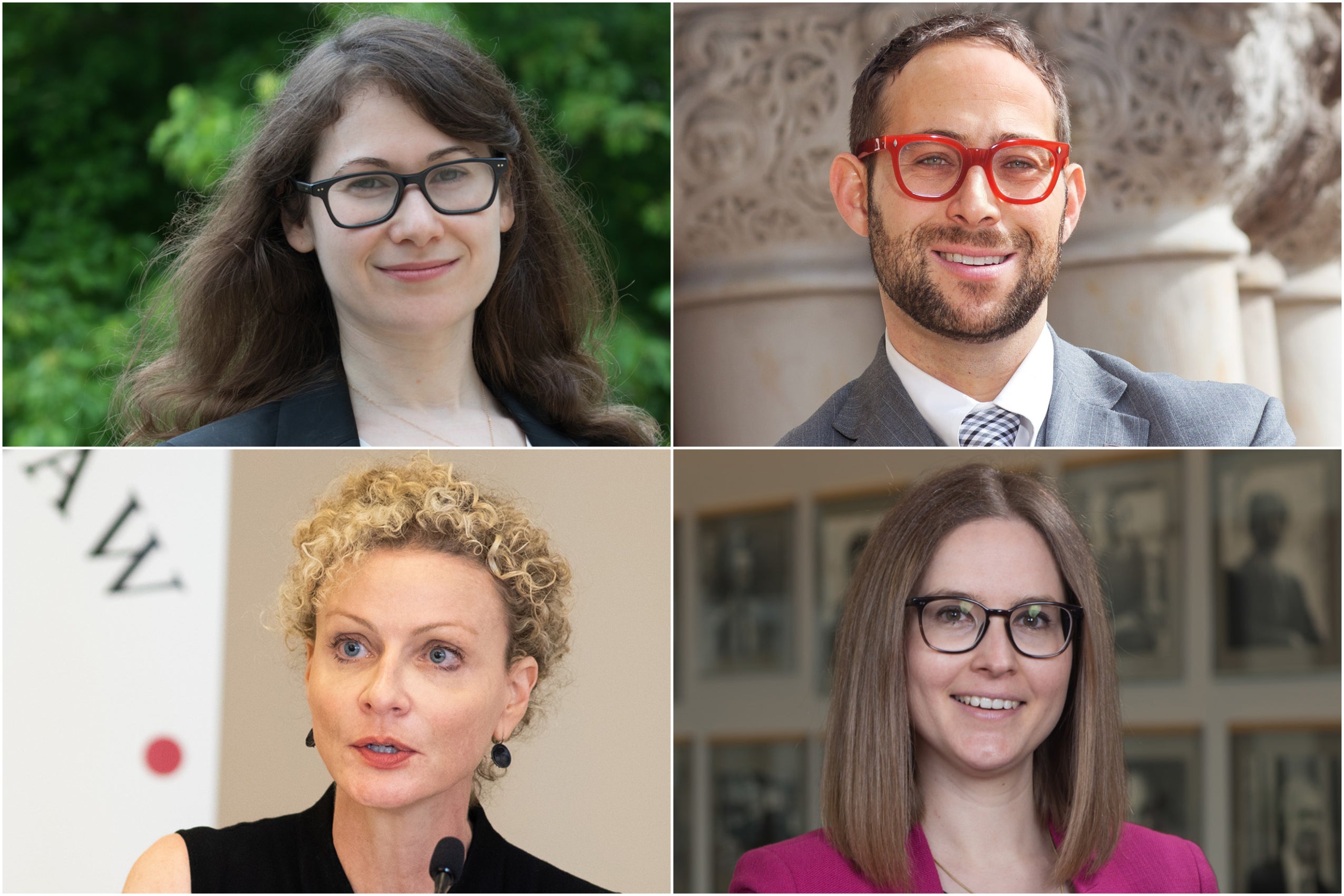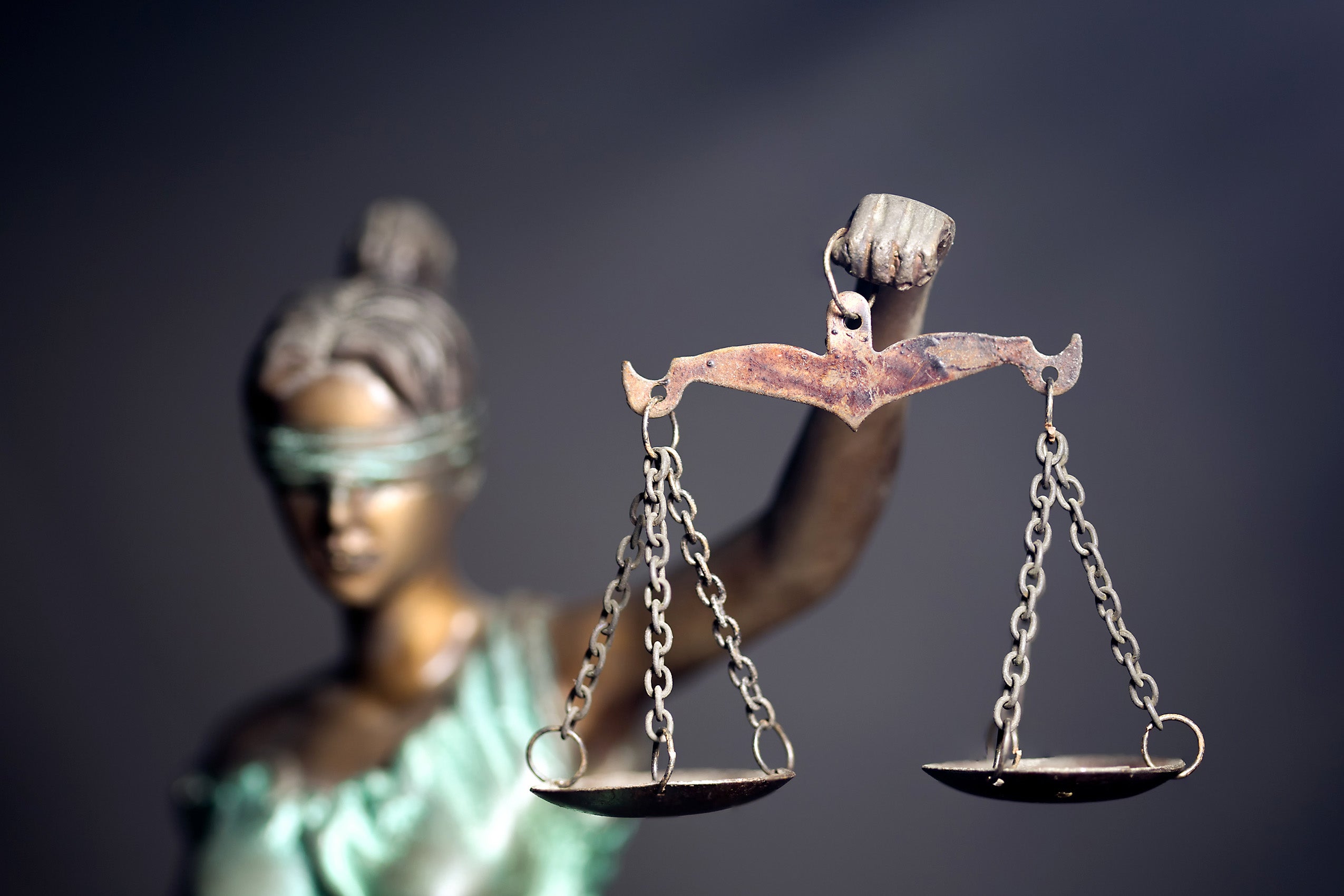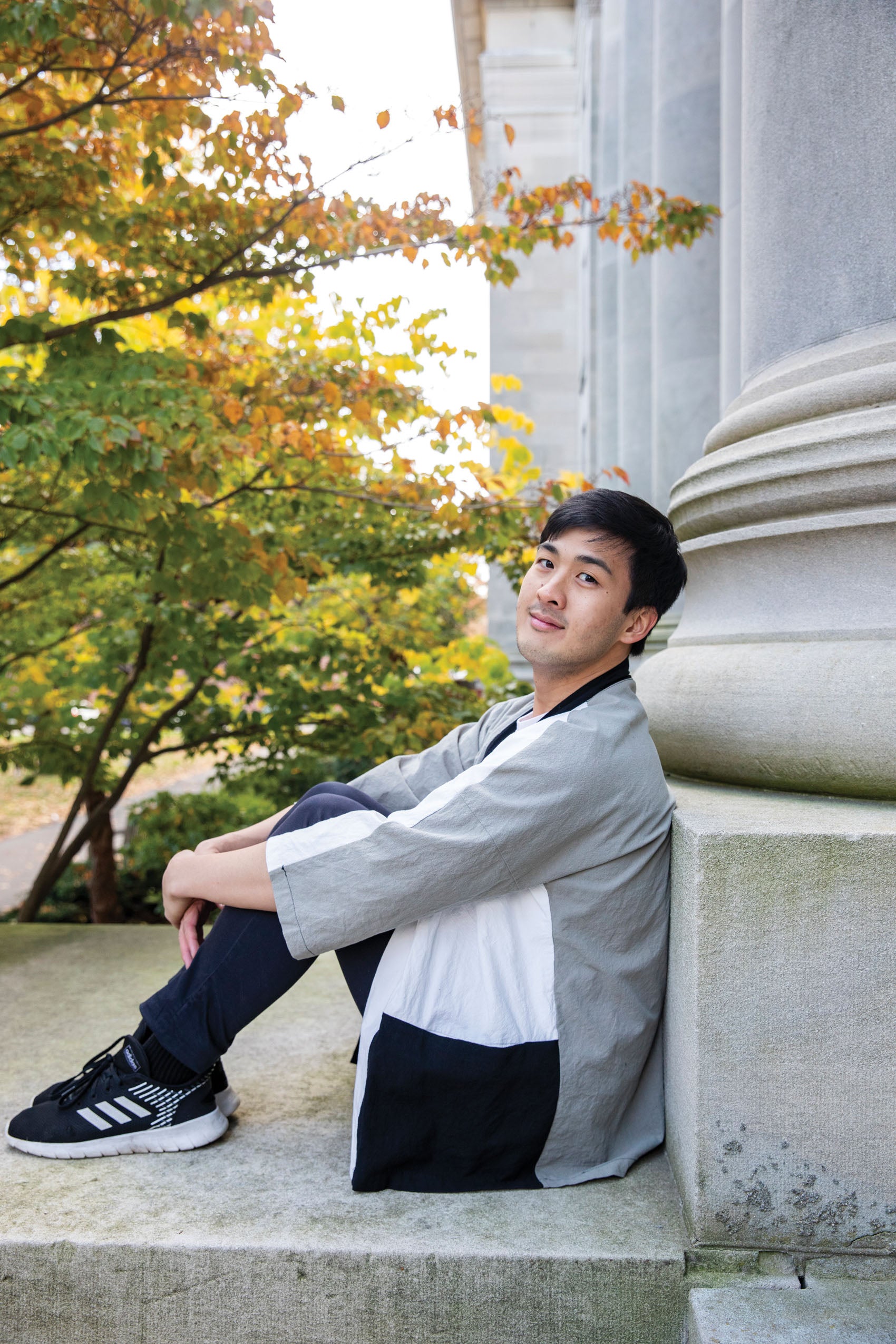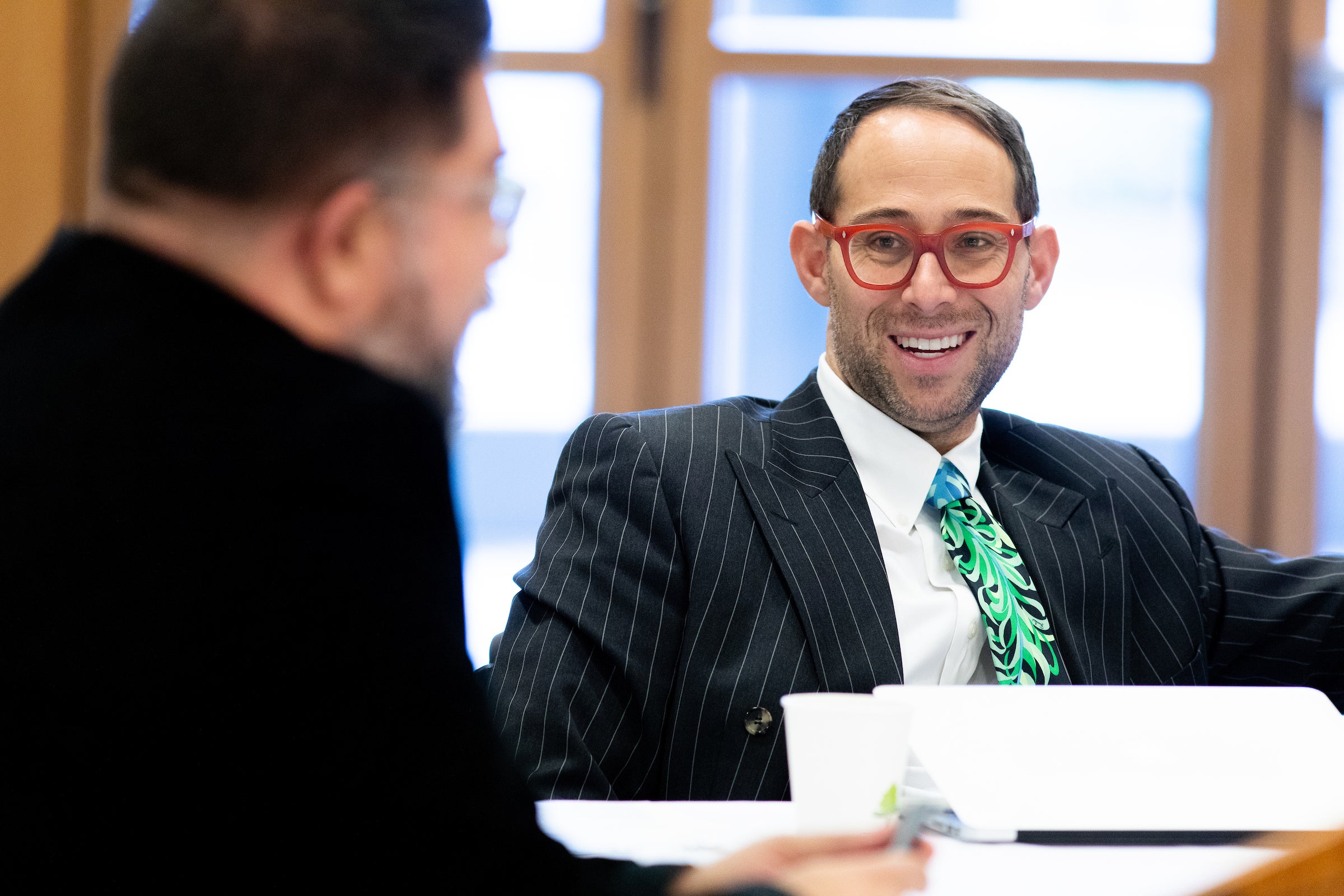People
Glenn Cohen
-
As the toll of the coronavirus pandemic rises, Americans confront with increasing distress the idea of rationing health care. Choosing to deny care to people in desperate need is anathema; it feels unAmerican, even. But in fact it happens all the time: when Congress allocates money for Medicare and Medicaid; when insurance companies reject claims; when the Trump administration decides to shut down the Federal marketplace for the Affordable Care Act. Rationing is also what happens when governments whittle down their budgets for preparing for deadly pandemics, as they did over the last decade...A wild card is how a litigious society will respond when patients are denied care. In the absence of clear protocols, doctors and hospitals run the risk of legal challenges that could gum up the works. "We think the risk to physicians is low, but not zero, and not trivial," says Glenn Cohen, a law professor and bioethics expert at Harvard Law School. The act of taking a patient off a ventilator is, legally speaking, fraught. Criminal law generally doesn't hold doctors responsible for not providing care if they don't have the resources, but taking a patient off a ventilator without their consent is a different matter. "It looks on paper like homicide," he says. "It doesn't matter if the patient would have died anyway. Case law says that shortening a life even by a few hours could lead to charges of manslaughter or murder."
-
Doctors and hospitals overwhelmed in the pandemic will have to make their excruciating life-or-death decisions meticulously or they risk being second-guessed by a jury when the onslaught is over. Lawyers who defend health care providers are already giving advice on how their clients can avoid liability if they’re forced to choose between patients. How they prepare for this battlefield triage now -- and how they practice it in the chaos of peak infections -- will determine whether negligence cases against them are dismissed or lead to trials or settlements over the death of a parent or spouse...There is an established standard of care in the industry, however, and providers could be accused of breaching their duty to patients by violating it and of negligence for failing to have enough ventilators on hand, for example. It’s a tough case to make in a pandemic. “I would expect hospitals to argue that their obligations are to make sure they have adequate equipment in ordinary times, not in pandemic times, and that seems quite persuasive to me,” said I. Glenn Cohen, a bioethics expert at Harvard Law School...In the wake of the pandemic, providers may be accused of failing to foresee a crisis that the Centers for Disease Control and Prevention and others have warned was inevitable, said Carmel Shachar, executive director of the Petrie-Flom Center for Health Law Policy at Harvard Law School. That’s especially so after the recent drumbeat of outbreaks from SARS to swine flu to Ebola.
-
Hospitals are threatening to fire health-care workers who publicize their working conditions during the coronavirus pandemic -- and have in some cases followed through. Ming Lin, an emergency room physician in Washington state, said he was told Friday he was out of a job because he’d given an interview to a newspaper about a Facebook post detailing what he believed to be inadequate protective equipment and testing. In Chicago, a nurse was fired after emailing colleagues that she wanted to wear a more protective mask while on duty. In New York, the NYU Langone Health system has warned employees they could be terminated if they talk to the media without authorization... “It is good and appropriate for health-care workers to be able to express their own fears and concerns, especially when expressing that might get them better protection,” said Glenn Cohen, faculty director of Harvard Law School’s bioethics center. It’s likely hospitals are trying to limit reputational damage because “when health-care workers say they are not being protected, the public gets very upset at the hospital system.”
-
When health officials in southwest Missouri announced earlier this month that another resident had contracted the coronavirus, they released details about where the person had been in recent days. The patient had shopped at a Walmart Neighborhood Market in Springfield on the morning of March 17. The day before, the person had lunch at a local Mexican restaurant and then went to another Walmart. On March 15, the patient had gone to a comedy club after dinner. Anyone who might have been at those same places — with specific locations identified — around those same times knew to more closely monitor their own health...A government should release as much “aggregate information” as possible as long as it doesn’t identify a patient, stigmatize vulnerable groups and induce additional panic, said I. Glenn Cohen, a bioethics expert at Harvard Law School, in an email to The Star. “Government always owes us transparency in general, but especially in a pandemic crisis when it is asking Americans to completely upend their daily lives and make sacrifices, sharing accurate information is necessary to maintain trust and make sure people continue to be willing to make those sacrifices,” he said. “So the default should be sharing information unless there is a very good reason not to."
-
When the first case of the coronavirus in Silicon Valley was discovered in late January, health officials were faced with a barrage of questions: What city did the patient live in? Whom had he come in contact with? Which health clinic had he visited before he knew he was infected? Dr. Sara Cody, the chief health officer for Santa Clara County, which has a population of two million across 15 cities, declined to give details...As the coronavirus spreads across the United States the limited disclosure of data by officials would seem to be a footnote to the suffering and economic disruptions that the disease is causing...I. Glenn Cohen, an expert in bioethics at Harvard Law School, says the guiding principle during this crisis should be sharing more rather than less. “Public health depends a lot on public trust,” he said. “If the public feels as though they are being misled or misinformed their willingness to make sacrifices — in this case social distancing — is reduced...That’s a strong argument for sharing as much information as you can,” he said.
-
Trump set for clash with governors over reopening economy
March 26, 2020
President Trump's aggressive timeline for reopening the economy could set the White House on a collision course with governors and mayors who seem intent on maintaining social distancing policies beyond the president’s Easter target date if necessary. Trump's proposal on Tuesday to ease restrictions by mid-April came as a number of state and local governments have moved in the opposite direction, heeding the advice of public health officials to implement stay-at-home orders and close non-essential businesses to stem the rising number of coronavirus infections...While the president has clear authority to rescind or alter federal health guidelines, legal experts say state and local officials are not required to follow them if their jurisdiction's health situation warrants stricter measures. Analysts believe that if federal and local governments begin to move in dramatically different directions in response to the outbreak, it could trigger a political fight, or perhaps a legal standoff, with implications for the fall elections. A majority of Americans, 58 percent are optimistic that the economy will recover quickly after the coronavirus abates. But if economic reality fails to match the rosier predictions, Trump could blame the weak recovery on state and local governments’ more stringent public health restrictions. “I think his biggest leverage is going to be political, to say ‘these people are ruining your local economy for no reason and I tried to stop them,’ ” said Harvard Law professor Glenn Cohen.
-
Protecting rights in a global crisis
March 25, 2020
In a Q&A, scholars at the Petrie-Flom Center for Health Law Policy, Biotechnology, and Bioethics at Harvard Law School raise important legal and ethical questions about health care delivery and the enactment of extraordinary public health measures in response to the ongoing epidemic.
-
Trump wants to scale back coronavirus restrictions by Easter to help economy. Is it all up to him?
March 25, 2020
President Donald Trump has said he wants to curtail the strict social distancing guidelines his administration put in place to slow the spread of the coronavirus pandemic because of the potential impact on the U.S. economy. But Trump is not the only executive to take action in the hope of "flattening the curve," the term medical experts use to describe a slow and steady rise in the number of cases of COVID-19 rather than a sharp spike that could overwhelm the nation's healthcare system. As the president weighs loosening the federal guidance, he does so against a backdrop of governors who have implemented their own statewide – and independent – restrictions, from curfews to lockdowns to sweeping school and business closures...The country's public health law is a patchwork of responsibilities divided up between the federal and state governments, but typically states are in control of "police powers," according to Professor Glenn Cohen, faculty director for the Petrie-Flom Center for Health Law Policy, Biotechnology & Bioethics at Harvard Law School. Some states even delegate those powers to individual localities. But if Trump decides to lift the federal guidance, states like California or New York that have issued stay-at-home orders "may decide to follow suit or not, but typically have significant discretion as to what to do," he said.
-
Overcoming obstacles to experiments in legal practice
March 19, 2020
This month, Harvard Law Professors Jim Greiner and I. Glenn Cohen teamed up with bioethics scholar Holly Fernandez Lynch to author “Overcoming obstacles to experiments in legal practice,” in which the collaborators argue in favor of randomized studies in legal research over the common practice of relying on the expertise and judgment of individuals.
-
Explaining a mass quarantine: What does it mean to ‘shelter in place’? And who has the power to call for it?
March 17, 2020
Six counties in the San Francisco metro area made headlines when they announced Monday they were ordering all their residents to “shelter in place” in response to the novel coronavirus. The sweeping proclamation is the most striking example to date of state and local governments in the United States taking sweeping action to halt the spread of the novel coronavirus and to limit the impact of the disease it causes, Covid-19. While the Bay Area is the first region in the U.S. to issue such an order, a number of states have mandated school and business closures and vastly curtailed nearly all major events... “The good news [is] there are a number of cases on public health needs, the constitution, and the so-called state ‘police power.’ The bad news is they are quite old, mostly turn of the 20th century, and a huge amount of constitutional law has changed since then. As a result there is a lot that is vague and uncertain in this area,” said Glenn Cohen, the faculty director of the Petrie-Flom Center for Health Law Policy, Biotechnology & Bioethics at Harvard Law School.
-
Coronavirus lockdowns abroad are raising questions about the upper limits of government power as health officials in the U.S. and around the world scramble to slow the spread of infection. The U.S. public health toolbox contains a host of potential measures, ranging from gentle prodding over hand washing, to more severe actions like prohibitions on large gatherings and even sharp restrictions on the movement of infected individuals. ... “In times of emergency — including public health emergency — the temptation to violate individual rights is at its greatest, and the courts have often been called on to defend the rights of the vulnerable,” said Harvard Law professor Glenn Cohen.
-
First Class
February 6, 2020
An organization started by Harvard Law students offers community and resources for low-income and first-generation college students at the school.
-
Who Gets The Frozen Embryos?
February 4, 2020
Late last month, the Arizona Supreme Court decided a hotly contested case involving frozen embryos. It all started in 2014, when Ruby Torres was diagnosed with cancer and became worried about her future fertility. She decided to use her eggs and a donor’s sperm to create embryos that she could then freeze for later use...As this case worked its way through the court system, the Arizona legislature responded by enacting a new law directing judges to grant viable embryos to the “spouse” who will allow them to be born, regardless of any contract providing otherwise. It also sets out what will happen if both spouses want to allow the embryos to develop. But that law did not apply retroactively to control the Torres case. The Arizona law is the first of its kind in the country, and it only applies to married couples...Moreover, as Harvard law professor Glenn Cohen and Brown Med School physician Eli Adashi pointed out, “embryo disputes have become a battlefront for larger conflagrations over the moral status of embryos.” That’s because “underlying most of the conflicts over disposition of embryos is whether one person’s right to procreate should prevail over another person’s right not to procreate,” observes GW Law Professor Sonia Suter. She notes that while courts tend to rule in favor of the party choosing not to procreate, the Arizona statute defied this trend by privileging the right to procreate.
-
In the future, the medication you take will not only be a matter between you and your doctor. Pills with built-in electronic sensors are already a reality in both Europe and the US, and in the future, they will fill pharmacy shelves. The new electronic pills can collect data, for example, on the state of the stomach and intestines, and this creates new opportunities for diagnosing diseases. The pills can also be used to monitor medication e.g. in patients with mental disorders. In an article published in Nature Electronics, a group of researchers point out that the use of the new electronic pills is not without problems. The researchers, Professor Timo Minssen and Assistant Professor Helen Yu from the Centre for Advanced Studies in Biomedical Innovation Law (CeBIL) at the University of Copenhagen, together with Professor Glenn Cohen and CeBIL’s Research Fellow Sara Gerke from Harvard Law School, point out that the new methods of treatment create both ethical and legal challenges.
-
Health care general counsels explore pressing health policy and legal issues at Harvard Law School
December 11, 2019
The General Counsels Roundtable helps influential health law attorneys stay on top of or even ahead of changes in health law and policy. The roundtable connects GC to experts at HLS and the broader university, while also strengthening ties between faculty and legal practice.
-
On the Bookshelf: HLS Authors
December 11, 2019
This fall, the Harvard Law School Library hosted a series of book talks by Harvard Law School authors on topics ranging from forgiveness in law, transparency in health and fidelity in constitutional practice.
-
Bioethics experts call on GoFundMe to ban unproven medical treatments
December 10, 2019
A bioethics study published on December 8th calls on crowdfunding platform GoFundMe to ditch campaigns for unproven and unsafe medical procedures. People turn to GoFundMe for help paying for all sorts of medical interventions. These campaigns have brought in over $650 million since 2010. But a subset of the money raised is spent on unproven and even illegal operations...The paper, written by Snyder and his co-author, Harvard Law professor I. Glenn Cohen, suggests steps GoFundMe may take to upend its “ethical problem.” They concede that expecting the platform to independently evaluate evidence for medical claims would be expensive and difficult. Instead, they propose a “white list approach,” only allowing people to raise money for regulated treatments or those cleared by the FDA for a special program called expanded access.
-
A Prisoner Who Briefly Died Argues That He’s Served His Life Sentence
November 10, 2019
What does it mean to complete a sentence of life in prison? One prisoner claims he has done it by serving time until the moment of his death — plus another four years since — and said it is well past time to set him free. ... Ms Primus said that if people were considered legally dead before being resuscitated, it would create a web of problems, not just in criminal cases but also for insurance and inheritance claims. She and I. Glenn Cohen, a professor at Harvard Law School who studies medical ethics and the law, said Schreiber’s argument was clever but never stood a chance. “It equivocates on what life and death means for the purposes of the criminal law,” Mr Cohen said in an email. He added that Schreiber would still be considered alive for purposes including organ donation, making it “hard to think he should be ‘dead’ for the purpose of serving a life sentence”.
-
Facial-recognition software correctly matched photos of research volunteers to unidentified medical scans of their heads, in a new study of images that are commonly used in brain research. The finding draws attention to a privacy threat that will increase with technology improvements and the growth of health-care data, experts in medical imaging and facial recognition said. ...The findings suggest existing privacy protections don’t go far enough, the study’s authors said. They also point to the continuing challenge of anticipating new risks from emerging technology, as well as to the need for caution in handling medical data, said I. Glenn Cohen, director of Harvard University’s Petrie-Flom Center for Health Law Policy, Biotechnology and Bioethics. “Our imaginations are only so good,” he said.
-
Consumer DNA Tests Negate Sperm Bank Donor Anonymity
September 12, 2019
For generations, it was a basic tenet of donating sperm: Clinics could forever protect their clients’ identities. But, increasingly, donor anonymity is dead. The rise of consumer genetic tests—which allow people to connect with relatives they never knew they had, including some who never intended to be found in the first place—is forcing sperm donation clinics to confront the fact that it is now virtually impossible to guarantee anonymity to their clients. Instead, sites like 23andMe and Ancestry.com are giving customers the genetic clues they need to identify biological parents on their own. ... In a 2016 study conducted by I. Glenn Cohen, a professor of bioethics at Harvard Law School, about 29 percent of potential sperm donors said they would refuse donating if their names were put on a registry. The study suggested that prohibiting anonymous sperm donations would lead to a decline in the number of donors and that those who were willing to be identified would likely demand more compensation.
-
On-Ramps
August 30, 2019
Students enrolling at Harvard’s Business School, Law School, and Graduate School of Education (HBS, HLS, HGSE) for M.B.A., J.D. and LL.M., and Ed.M. degrees now can—and in some cases must—begin their programs of study before matriculating. Making use of the summer before the new academic year, each school has linked a new kind of instruction with online technology to introduce entering students to content critical to their coursework and, for HBS and HLS, their distinctive pedagogies...Shortly after he became dean of the law school in mid 2017, as part of his plans for online education, John F. Manning expressed interest in developing a common learning experience “meant to ensure that all incoming students, whatever their backgrounds and previous areas of study, start with the foundational knowledge that will enable them to thrive at HLS,”as a Harvard Law Today (HLT) report put it...Attwood and Williams professor of law I. Glenn Cohen, who had taught an online course on the HarvardX platform and also leads a first-year section, was tapped to lead the faculty group developing a pilot program—not least, he said, because he “thought it was a supercool project.” One reason for that, Cohen explained, derived from his own “origin story”: he was a first-generation college student, too (neither parent finished high school); there were no lawyers in his family; because he had studied bioethics (philosophy) and psychology, coming to HLS was a “big transition” (he is J.D. ’03); and as a native of Canada, “I knew nothing about the U.S. legal system.”




